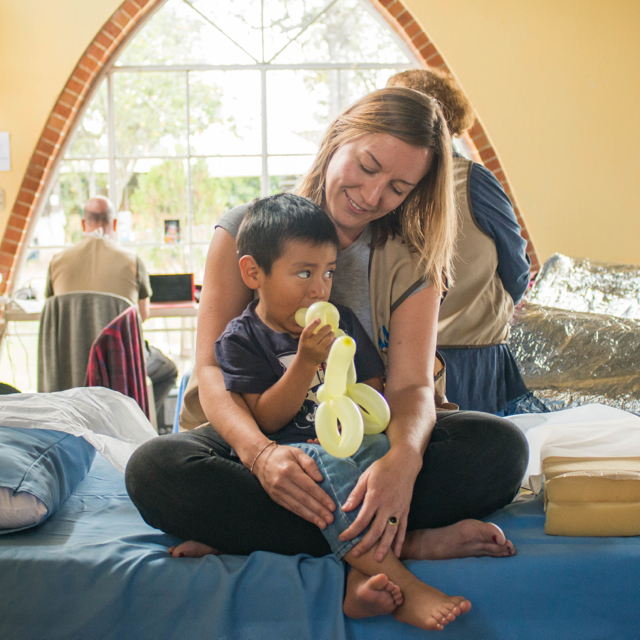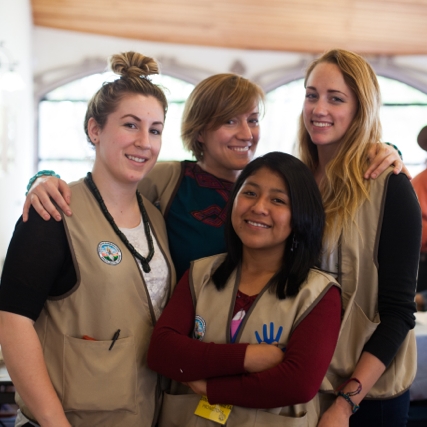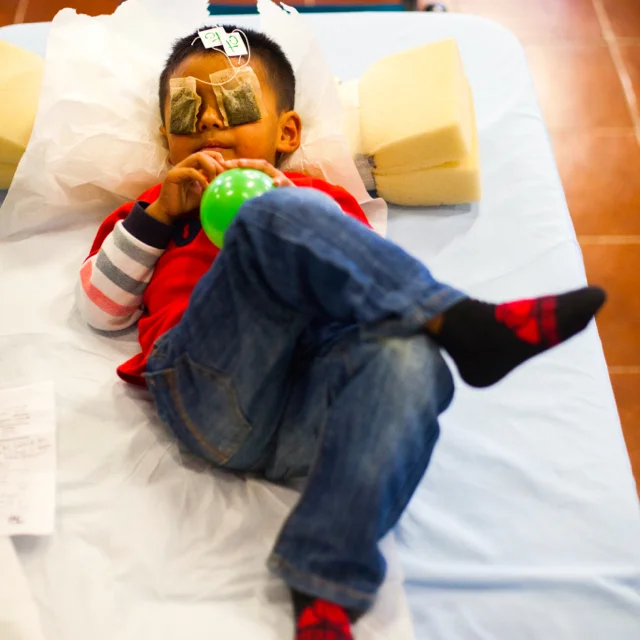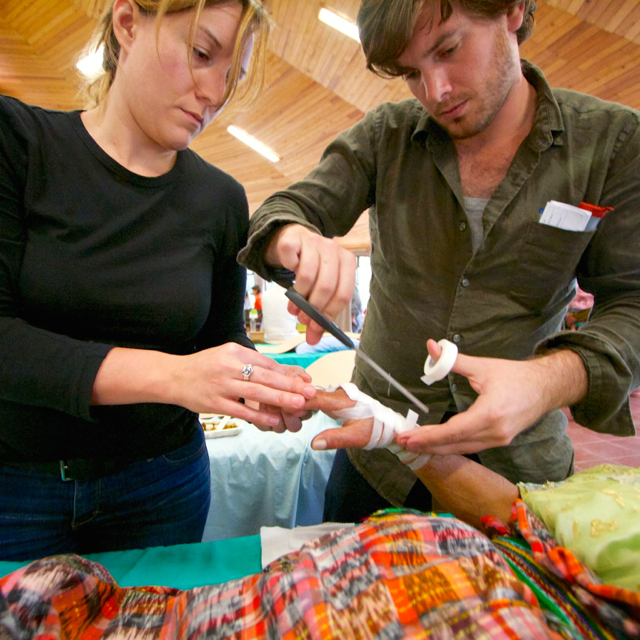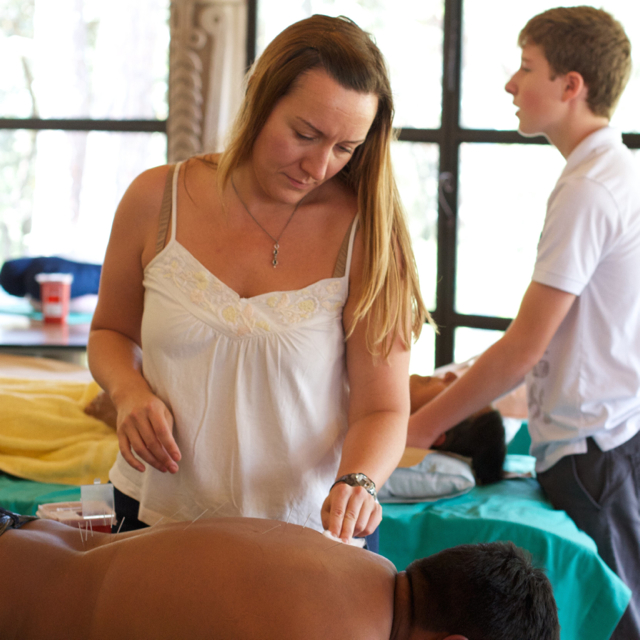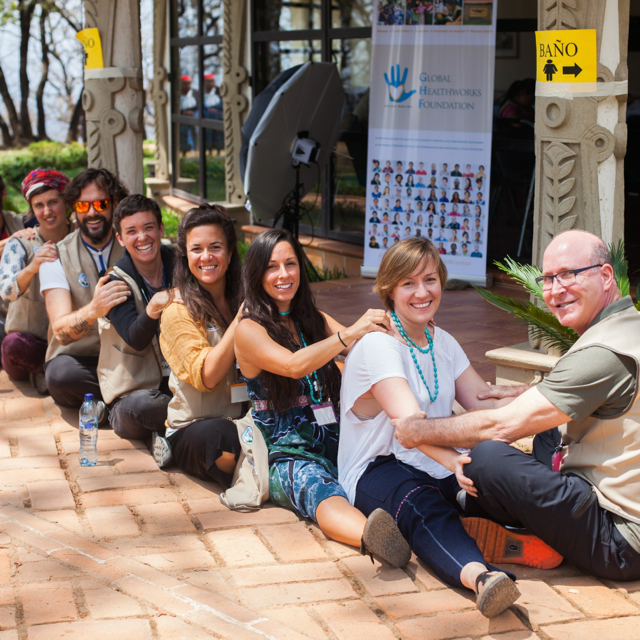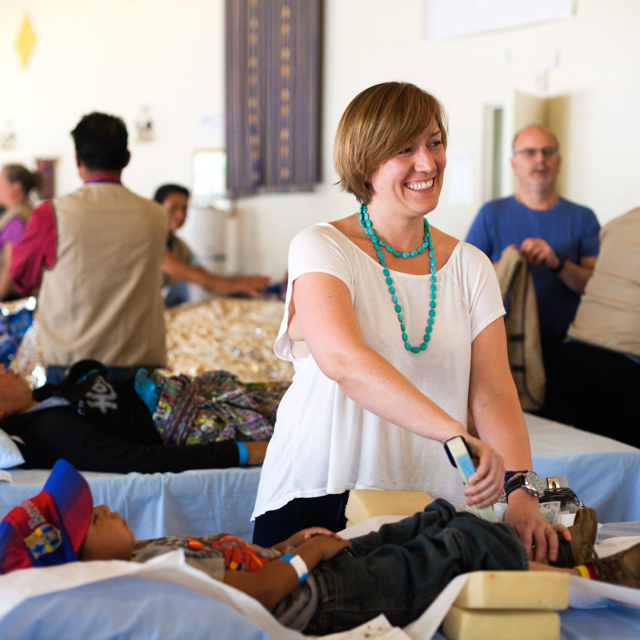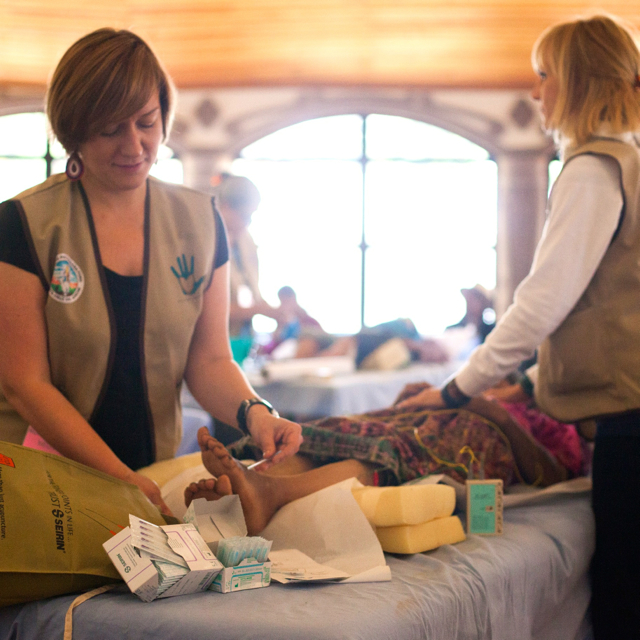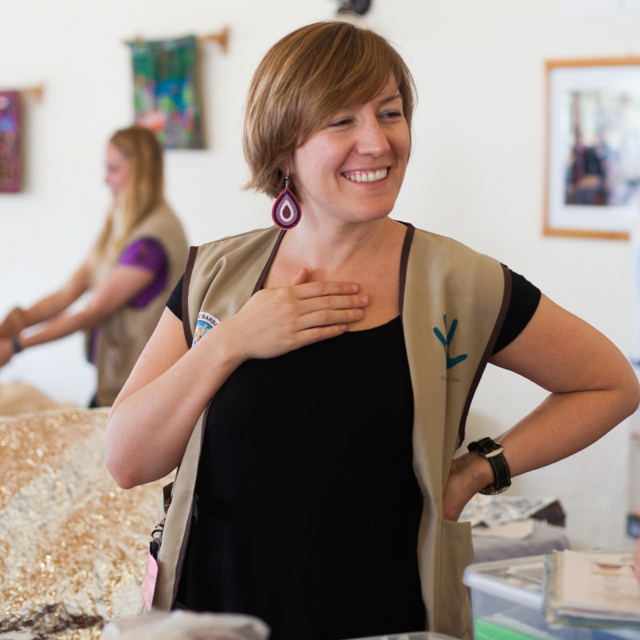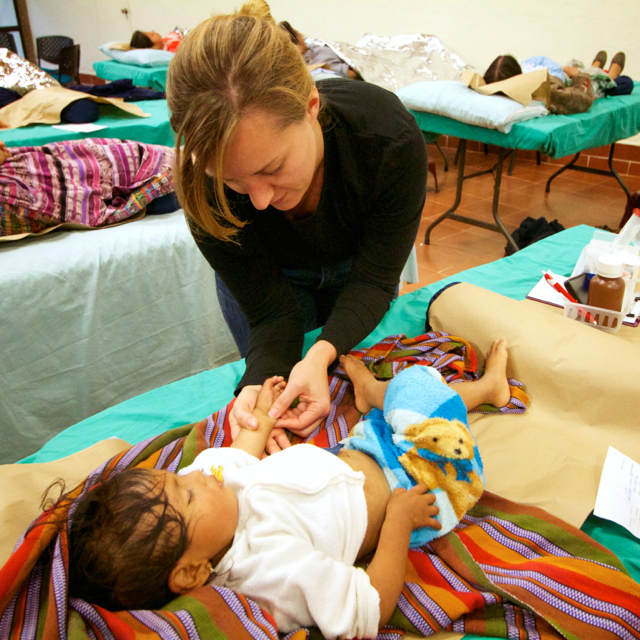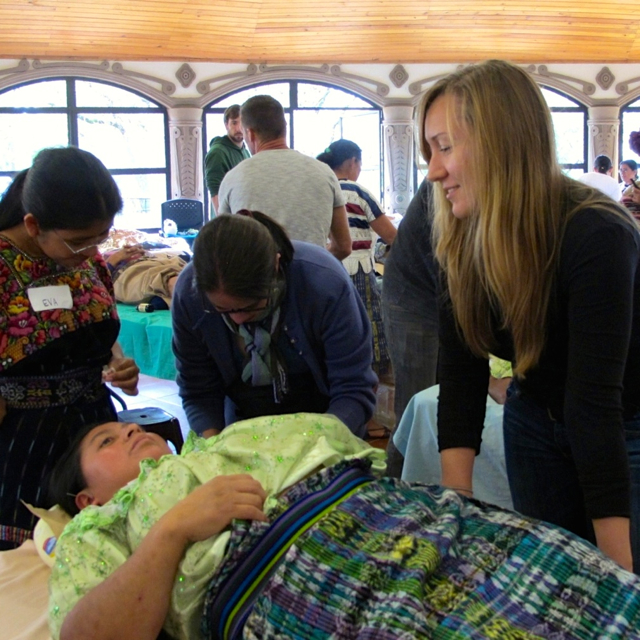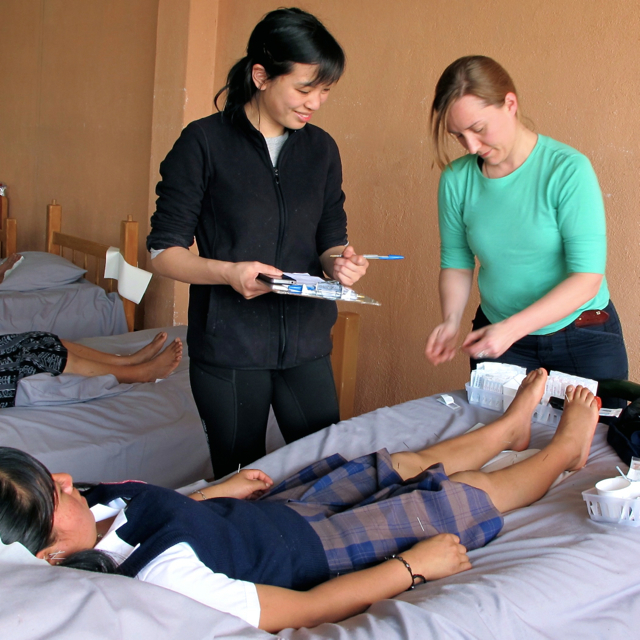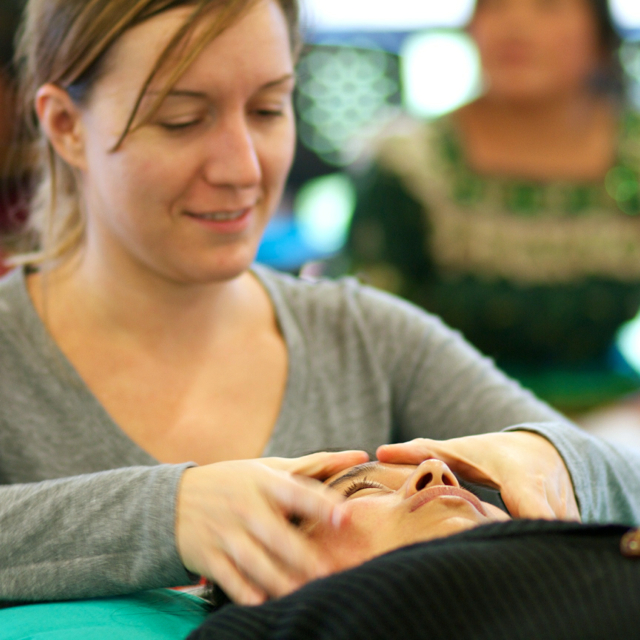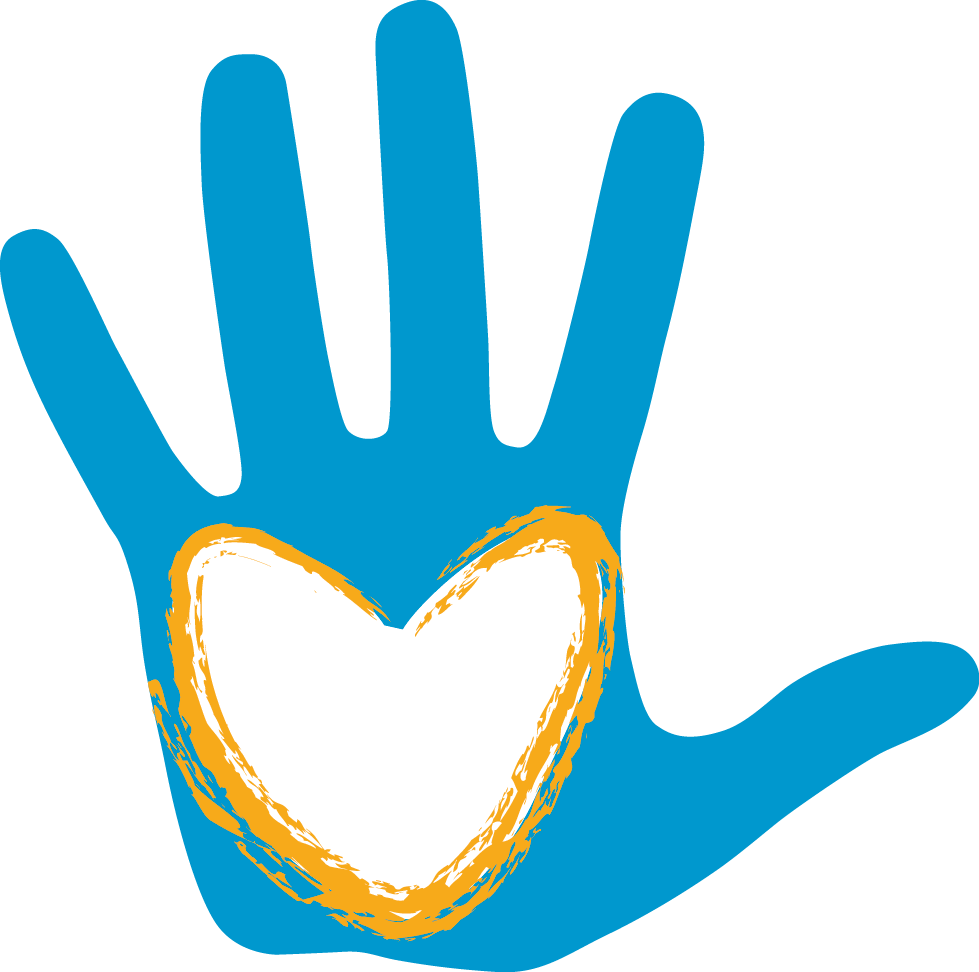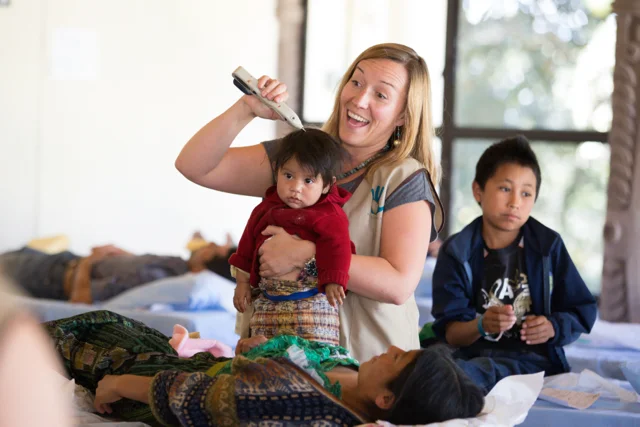With a great mixture of treatment and organization skills, our good friend Norva Bennett has been a great asset to GHF’s outreach work in Guatemala. She is a dependable alumni volunteer with six trips under her belt – and her greatest strength is her ability to exist in the moment with her patients. Read all about her story with Global Healthworks Foundation below.
Norva Bennett’s Heart-Centered, Human-to-Human Connection
An elderly man wearing a worn button-down shirt, khaki pants, and no socks lies on Norva Bennett’s acupuncture table, his recently cleaned feet exposed to the world. Next to his shoes on the floor sits a plastic trash can, overflowing with used alcohol and baby wipes.
“I like to wash my patients’ feet,” Norva says, pointing to the box of alcohol wipes she’s holding. “Sure, it’s somewhat clinical. I need to clean their feet to needle them. But it’s more than that. It’s sort of my way of telling patients that I’m here to care for them. To say, ‘I’m not above you. I’m here with you and I’m willing to help.’ Plus, it feels good for them!”
Cleansing the feet of each Quiché resident who hops on her table is characteristic of Norva’s commitment to ensuring patients feel loved, nurtured, and at peace. “My approach to treatment with any patient—Guatemalan, New Yorker, or otherwise—is to establish a human-to-human connection,” she says. “When we ask someone to relax or take a nap, we are allowing them to step away from their daily stress for a moment. We’re communicating that things don’t always have to be so hard. They can allow us to do the caretaking for once.”
Norva’s attention to every detail—even one’s feet—says Dan Wunderlich, Founder and Executive Director of Global Healthworks Foundation (GHF), is what sets her apart from many other acupuncturists. “Even though she’s only been practicing for three and a half years,” Dan explains, “She’s incredibly talented.” And she’s organized. “On our outreach trips, she uses a balanced mixture of treatment and organizational skills. In addition to her abilities as a clinician, she’s also incredibly helpful with the logistics of each trip. I’d trust her leading a jornada (medical mission) without me.” The April 2015 trip marks Norva’s sixth with GHF.
Prior to becoming an acupuncturist, Norva worked as a Broadway stage manager; hence, the organizational skills. Though leaving the theater world for Chinese medicine may seem like a strange career change to some, Norva says, it felt like a “no-brainer. I’ve always been interested in health, especially nutrition. I love the idea of actually healing people and changing the quality of their lives—not just putting a Band-Aid on a problem.” Along with her diverse background, that approach is what makes her such a successful acupuncturist, says Peter Panken, a fellow GHF volunteer and acupuncturist. “She’s done a lot of work in Five Element acupuncture, which is about the heart connection,” Peter notes. “I think it’s taught her how to create a healing space for patients—and not do it at her own expense.”
Establishing that “heart connection” is evident in Norva’s interactions with all individuals, but especially with women. As a noticeably anxious middle-aged woman lies down on Norva’s table, the acupuncturist seeks help from an interpreter. “Can you tell her something for me?” she asks. Magda, the Spanish-to-English interpreter, nods. “Tell her this: ‘Relax and let me take care of you. Pretend I’m the mother and you are the child. Allow yourself to be taken care of for a bit.’” After Magda translates, the woman exhales and smiles. Norva begins her treatment.
“She has a great ability to exist in the moment with her patients,” Pete Caron, acupuncturist and local GHF Program Manager, says. “Her commitment to learning and growing as an acupuncturist shows in her smooth flow between different styles and approaches, allowing her to meet the patient where they are at any given movement.”
“Norva has a great ability to exist in the moment with her patients.”
“I just try to treat patients as if they were family,” Norva explains. “I want them to know I am with them and here to be of service to them.” Part of that service, she adds, is encouraging small, yet significant lifestyle changes. “While I am their doctor, I also want patients to understand that they have a role to play in their own health—like drinking more clean water. What we have formed with GHF represents that. It’s quality healthcare that is sustainable in a community in need.”
Like many other GHF volunteers, in addition to her nurturing spirit, Norva also knows how to make treatment fun. When several children communicate their apprehension about needles, Norva grabs a packet of ear seeds. “What do kids like?” she asks. “Stickers!” She places a seed in the middle of her forehead, and the kids laugh. “¡Quiero uno! (I want one!)” a young girl yells. Norva places a few seeds on the girl as the other children gather for “healing stickers,” as Norva calls them. “It’s kind of a cool thing,” she says. “Seeing kids get excited about something that can really help heal them. I’ve never had quite that many kids on my table wanting a treatment before. It’s pretty powerful.”
Powerful experiences like these are what keep her coming back to Guatemala twice a year. Though Quiché is a markedly different environment than New York City, Norva treats with ease and passion, providing the same quality of care to her Guatemalan patients as those back home.

